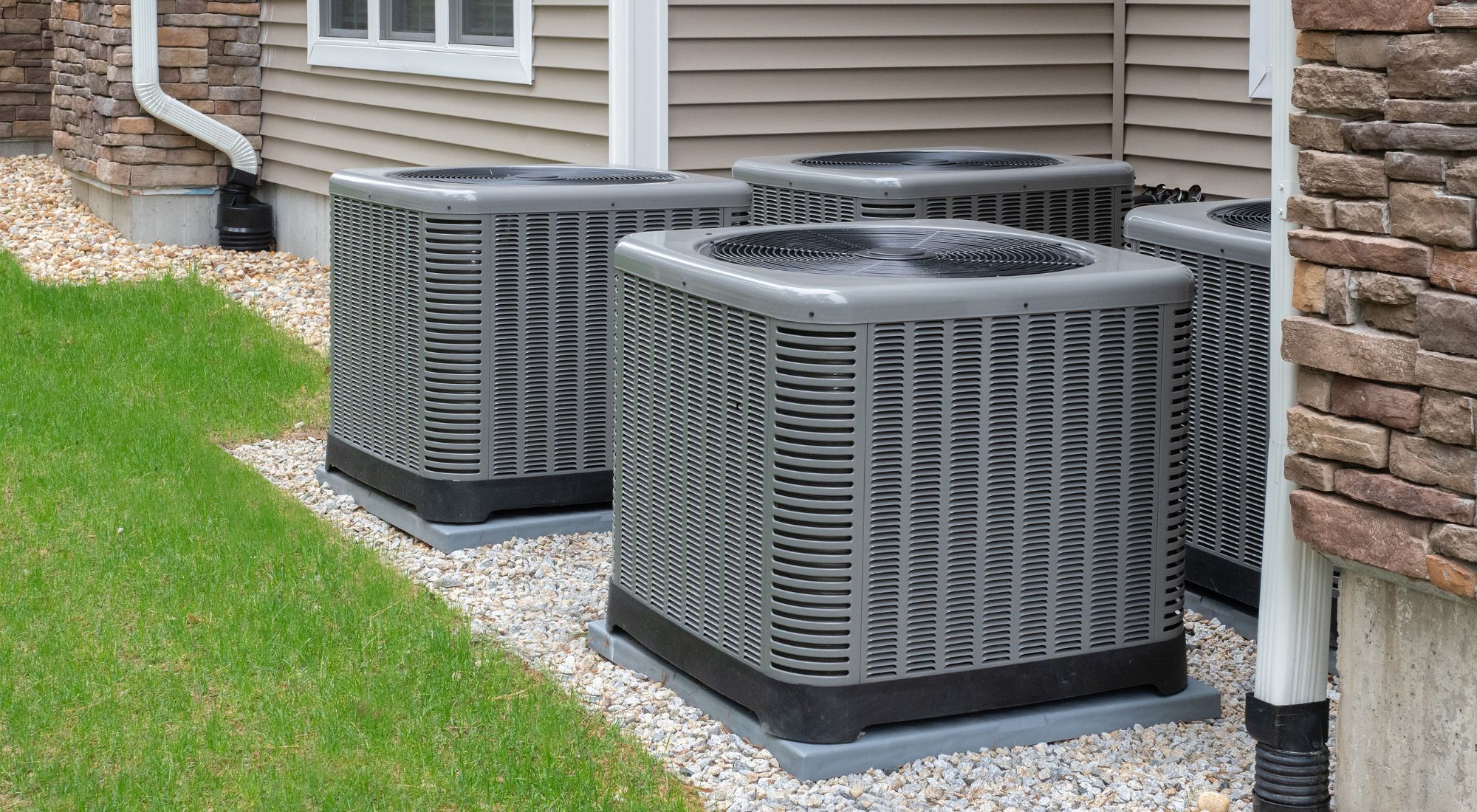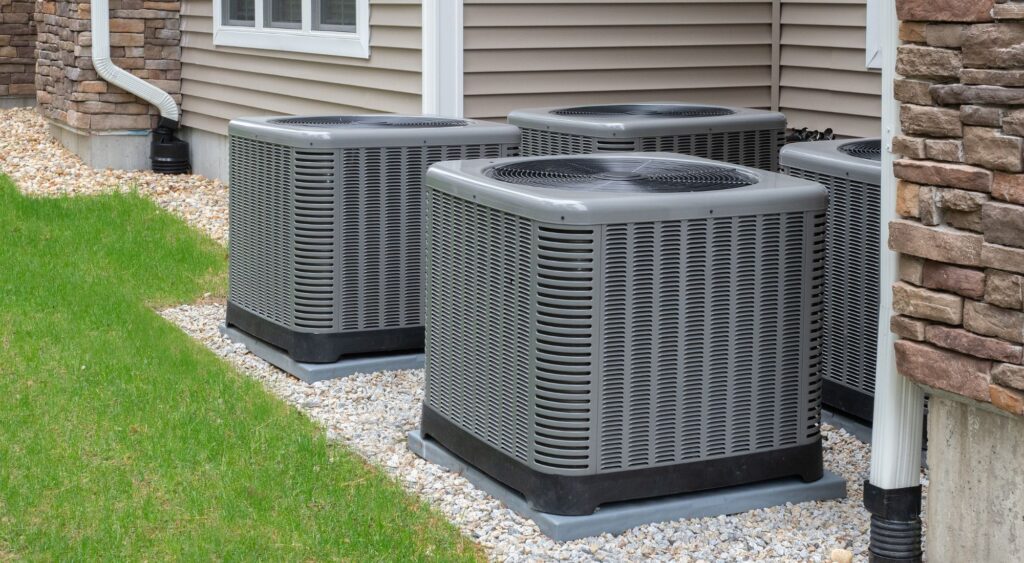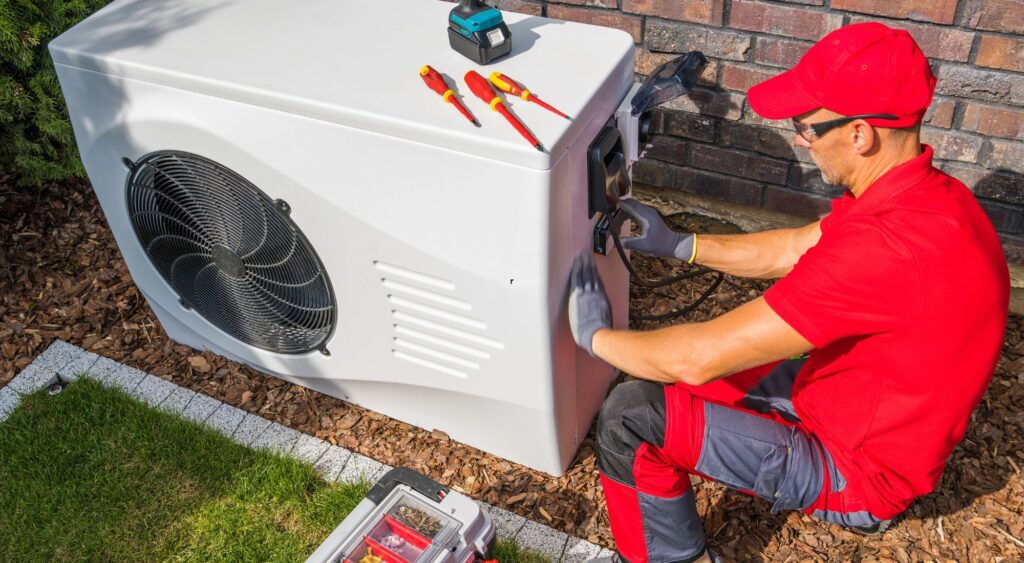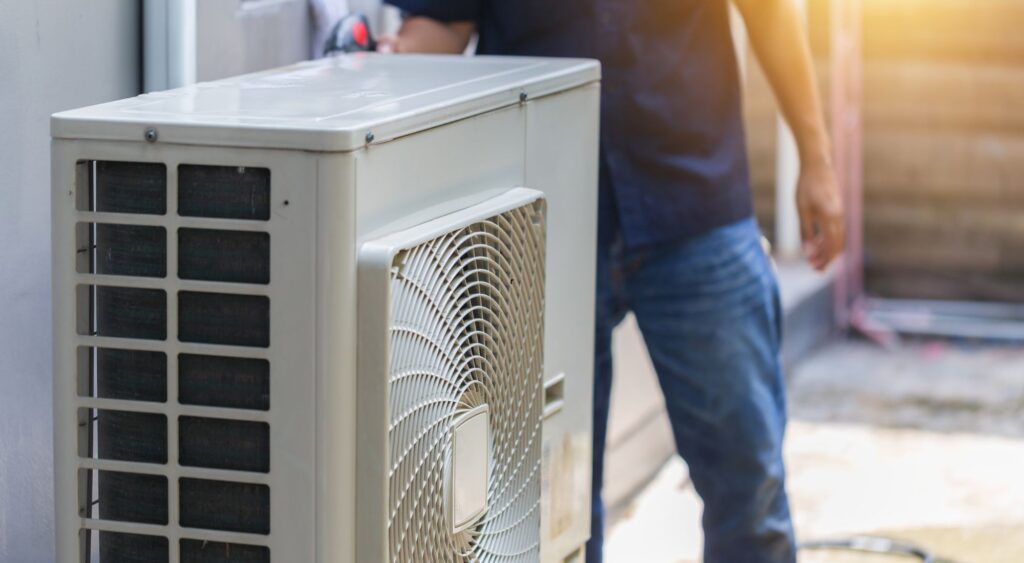
Maybe you’ve noticed your energy bill is climbing and climbing with each passing year. Maybe you’re constantly adjusting your thermostat more than you normally should. Or your allergies begin to act up in the fall and spring a lot more than they have in the past.
Is it inflation? Global warming? More trees or ragweed in the neighborhood?
Well, it could be all three, but it’s also your HVAC system.
Find out how you might avoid inconvenient break-downs, excessive heating and cooling costs, and uncomfortable, allergy-ridden home conditions by employing routine preventive maintenance on your HVAC system.
This article contains a comprehensive checklist for annual HVAC maintenance, as well as a few helpful resources for maintaining your residential and commercial heating and cooling units.
Table of Contents
- What is the Importance of Having an Annual HVAC Maintenance Schedule?
- The Risks of Skipping Annual HVAC Maintenance
- The Benefits of Annual HVAC System Maintenance
- Exploring the Yearly HVAC Maintenance Timeline
- AAA Heating and Cooling: The Experts You Can Trust for HVAC Preventive Maintenance, Inspections, and Repairs
What Is the Importance of Having an Annual HVAC Maintenance Schedule?
Nearly 90% of American homes have some form of HVAC system.
Unfortunately, since HVAC systems tend to be obscured in the back of homes and other buildings, they often become forgotten about or neglected. Routine maintenance and inspections must be performed to ensure that your heating and cooling unit is operating efficiently and normally.
Your HVAC system is an important part of your home. By not performing routine maintenance and inspections, you run the risk of breakdowns or other hazards.
Not performing preventive maintenance on your HVAC system is kind of like neglecting to do usual maintenance on your car, like oil checks. Only, your HVAC system doesn’t have a little light that comes on when it needs an oil change or something is wrong. This is why it is important to have an annual HVAC maintenance schedule.
The Risks of Skipping Annual HVAC Maintenance
A neglected HVAC system may cause your HVAC system to perform poorly, which could lead to:
- Decreased comfort levels: An HVAC system running efficiently should manage the temperatures in your home. Issues like blocked vents may make it difficult for your system to distribute cold air and heat throughout your home.
- High humidity levels: Your HVAC system may cool your home but it also manages heat and moisture levels. An inefficient HVAC system due to improper maintenance may not be effective at removing water particles from the air leading to higher-than-normal humidity levels.
- Safety concerns: Hazards may arise from a lack of seasonal HVAC maintenance. Wiring issues, line issues, clogs, and drainpipe issues may lead to:
-
- Fire hazards
- Carbon monoxide leaks
- Water leaks
- Reduced indoor air quality: According to the EPA, Americans spend 90% indoors so it is important that the air we breathe indoors is as healthy as possible. A poorly maintained HVAC system may circulate dirt, dust, and allergens throughout your home, which may cause respiratory issues. A poorly maintained heating and cooling system may also create a humid environment for a bacteria called Legionella to thrive. This bacteria causes a disease similar to pneumonia called Legionaire’s disease.
- Structural damage: If moisture is not properly removed from the air, your home may be subject to structural damage including:
-
- Peeling paint and wallpaper
- Rotting wood
- Mold growth inside the walls/underneath the flooring
- Caving walls, ceilings, and floors
- And more
Unwanted household guests: Pests like centipedes, earwigs, cockroaches, and other insects love hot, humid environments. Termites also prefer damp, decayed wood because it makes it easier for them to chew and burrow through.
The Benefits of Annual HVAC System Maintenance
Yearly HVAC maintenance may help you save yourself from costly hassles and inconveniences. Other benefits of routine preventive maintenance and inspections might include:
- Lower energy bills: An efficient HVAC system does not have to work as hard as a system that is in need of maintenance or repairs, thus reducing energy costs.
- Extended equipment life: Preventive maintenance can extend the life of your HVAC units up to several years.
- Safer equipment operations: When your system and units are running proficiently and efficiently, you decrease the likelihood of malfunctions that may cause dangerous hazards.
- Decreased chance of breakdown: Routine maintenance and expectations might help you decrease breakdowns by catching or addressing problems before they worsen.
Exploring the Yearly HVAC Maintenance Timeline
A lot of preventive maintenance can be done quickly by the homeowner.
However, some annual HVAC maintenance tasks may need professional insight and help. Heating and cooling professionals have the tools, skillset, and knowledge to accurately inspect and assess problems that even the most avid DIYer may not be able to handle.
At AAA Heating and Cooling, we are committed to the health, safety, and comfort of our residential and commercial clients. With a Better Bureau Business Rating of A+, we have been serving Portland and the surrounding communities since 1961.
Whether you need an inspection, repairs, or concerns about your heating and cooling system, we are the trusted professionals to call upon.
Year-Round
Keep an eye out for your HVAC unit year-round with these two quick annual HVAC maintenance tasks.
Landscaping
Your HVAC system works by collecting heat and moisture from inside your home and moving it outside through the condensing coil. Once the hot air is pushed out, the condenser needs fresh, cool air to come in. The fan on top of your unit is what helps cycle cooler air in.
When the top or sides of your unit become blocked, the fan and condenser have to work harder which may, over time, result in breakdowns. Decreased efficiency may also be the result of overcrowded or blocked AC units.
Blockages can contribute to frozen coils and when the freeze travels up the line it can cause the compressor (one of the most expensive HVAC components) to fail.
Perform the following routine maintenance tasks to ensure that your unit can perform at peak efficiency:
- Keep the area around the outside units clean and free of debris and tall grass.
- When leaves and pine needles fall, or pollen coasts the equipment, gently brush them away.
- Keep toys, furniture, bikes, and garden supplies a few feet away from equipment.
- Trim back plants, trees, and shrubs so they’re about three feet away from the equipment.
Visual Inspection
Regularly inspect your HVAC system for issues that require a professional’s attention, such as:
- Dirty evaporator or condenser coils
- Damaged fins
- Water leaks
- Frozen coils
In addition, pay attention to how the system sounds. Call an expert if you notice new or strange sounds or vibrations. Be sure to clean the outside of your unit to reduce dust, dirt, and grim buildup.
Every 3 Months
These three, quarterly HVAC maintenance tasks can take just minutes to accomplish and ensure the safety, efficiency, and longevity of your heating and cooling unit.
Air Filters
Replace the air filters in your HVAC equipment at least once every three months to promote proper, clean airflow.
If you have the manufacturer’s instructions available, follow its recommendations regarding the frequency with which to change the filters.
Keep in mind that when there are cold snaps or heat waves, which place a heavier burden on your equipment, it might be a good idea to change the filters more often, such as once a month during the respective season.
Thermostat
As temperatures change, adjusting your thermostat will help prevent overloading your HVAC system and wasting energy.
When the weather gets warm, set the thermostat to the “Cool” function. In the fall or winter, set it to the “Warm” or “Heat” function.
As the temperatures change, ensure that the set point temperature isn’t hotter than the conditions outside or at room temperature during the spring and summer. During the winter, the set point temperature should not be cooler than the room temperature or the temperature outside.
If you are not sure about how to program the thermostat, you are not alone. Call an HVAC expert to do it for you while giving you a tutorial.
Electrical Connections
Disconnected, loose, or broken connections compromise a system’s safety and efficiency. If you can’t simply plug a loose connection back into the appropriate spot, call an HVAC contractor.
Fall and Winter
Typically heating and cooling companies are busier in the winter than in the fall, so try to get an early start on your annual HVAC maintenance inspection and preventive maintenance.
Professional Heating System Inspection
In the fall, hire an HVAC expert for the heating system’s annual maintenance and inspection.
During the inspection, the HVAC professional will check the:
- Electrical connections
- Voltage condensate drain
- Exhaust outlets
- Fuel lines
- Burners
- Heat exchangers; and
- Other components
They may also lubricate moving parts and address any areas of concern.
A new HVAC system can cost anywhere between $5,000 to $34,000. By calling a professional to perform an annual HVAC maintenance inspection at least twice a year, you are saving yourself the cost of replacing your unit in the event of a catastrophic breakdown.
Carbon Monoxide Detector
During the winter, temperature plummets and your home heating system often runs for hours. This increases the risk of carbon monoxide (CO) poisoning.
Every year, an average of 420 people die and more than 100,000 people are treated in the E.R. due to accidental CO poisoning. This is why it is extremely important to include carbon monoxide detector maintenance in your yearly HVAC checklist.
If you use natural gas or oil for your heating system, replace the batteries in your carbon monoxide detector and test it to ensure that it works well. Replace the detector every five years.
Furnace
Furnace humidifiers rely on a humidifier wick, also referred to as a humidifier pad, to filter the moist air blown by the furnace. Without routine replacement, your unit may be subject to mold growth.
It is recommended that you replace the humidifier wick and turn on the water supply to the furnace in the fall.
Snow and Ice Accumulation
Dust off snow that accumulates on your outdoor HVAC equipment. If you see a bit of ice forming on the units, this is usually okay. Excessive ice on your air conditioning unit may be the result of low refrigerant or blocked airflow.
If sheets or blocks of ice form on them, immediately call an expert. Do not try to melt the ice.
Spring and Summer
While winter may be a busier time for heating and cooling professionals than spring or fall, summer reigns supreme. Running into HVAC system breakdowns during the summer can be a bummer, especially if you live in an area where the humidity and heat are not so forgiving.
The early bird stays cool in the summer when they get the necessary HVAC maintenance for this half of the year done in the spring.
Professional Cooling System Inspection
Before the weather warms in the spring, hire an HVAC expert to inspect the A/C. The professional will inspect the:
- Connections
- Voltage
- Lines
- Fins
- Pans
- Coils
- Refrigerant levels
- Blower system components
- And more.
They will also lubricate moving parts, clean dirty components, and calibrate the blower. If any of the above-listed components seem foreign to you, you may want to call in a professional.
In the 62 years of experience at AAA Heating and Cooling, we’ve never had a problem we couldn’t solve, but that being said — it’s better to catch potential issues before they become problems.
Our priority is the safety, health, and longevity of our customers and their HVAC units. During inspections, we make sure to listen to our client’s concerns and problems while walking them through the inspection process.
We are a family business helping families. Let our family help your family with your annual HVAC maintenance today.
A/C Refrigerant Lines
Find the two copper lines that go into the A/C condenser and identify the larger line (it might have insulation covering it).
During the spring and summer, the line will feel cold or have condensation on it if refrigerant levels are sufficient. If the line does not have condensation on it or it does not feel cold to the touch, call a professional right away.
Low refrigerant levels are one of the top causes of A/C failures. Check the refrigerant lines monthly when you use the A/C.
Furnace
Turn off the water supply to the furnace when you stop using it in the spring. This may help you reduce fuel costs during the cooling season.
AAA Heating and Cooling: The Experts You Can Trust for HVAC Preventive Maintenance, Inspections, and Repairs
HVAC problems never happen at convenient times. Regular maintenance helps you avoid a crisis and might save you an arm and a leg in replacement or repair costs.
Even if you are talented at all things DIY, don’t get too carried away.
Always hire a licensed HVAC contractor to perform annual maintenance and repairs on your HVAC system to prevent accidentally voiding active warranties, creating a hazard, or damaging your unit. Your safety and home are our priority and with our services, you’ll always be in good hands.
Don’t wait until your HVAC system begins to act up. Get started with your yearly HVAC maintenance checklist by getting in touch with AAA Heating & Cooling today.



